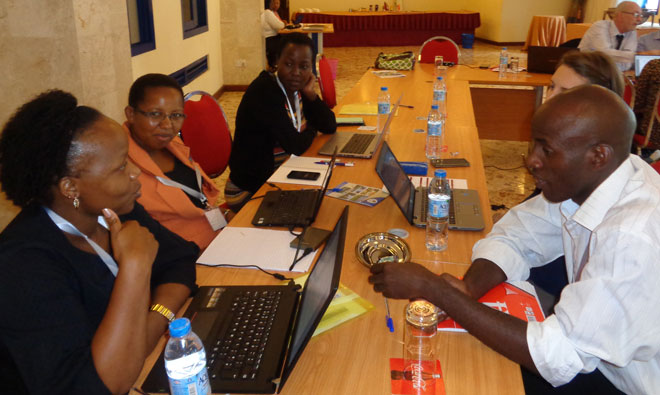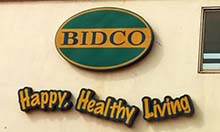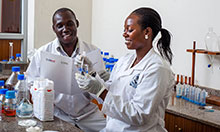
For the last two years, SPRING/Uganda chaired the inspection and enforcement working group of the East Central and Southern Africa Health Community (ECSA-HC). To ensure the sustainability of the working group, SPRING transitioned this role to the Uganda National Bureau of Standards, which has been one of SPRING’s key partners in ensuring adherence to fortification regulations and standards.
As chair of the working group, SPRING/Uganda organized a workshop to harmonize inspection guidelines for food fortification among member countries. SPRING coordinated the selection of laboratory representatives trained in analysis of micronutrients in fortified foods using the ECSA-HC adopted protocols. SPRING also supported the drafting of the terms of reference for the laboratory working group, the fourth and newest working group established in June 2017.
ECSA-HC is an intergovernmental organization established to foster cooperation in health and nutrition in the East, Central and Southern Africa region. Its active member countries include Kenya, Lesotho, Malawi, Mauritius, Swaziland, Uganda, United Republic of Tanzania, Zambia, and Zimbabwe. The organization’s mandate is to promote and encourage efficiency and relevance in the provision of health services in the region through advocacy, capacity building, coordination, inter-sectoral collaboration, and harmonization of health policies and programs.
The countries of the ECSA Region have made tremendous progress in designing, resourcing, and implementing programs which focus on making fortified and nutritious foods widely available within recommended standards. This regional effort led to improved coordination among countries in the region, which resulted in harmonization of standards, production of manuals for food quality control and inspection, establishment of a regional laboratory proficiency network, and capacity building of more than 100 government officials on the design and implementation of food fortification programs.
ECSA-HC, in collaboration with development partners, continues to work with its member states to introduce and implement food fortification initiatives.



